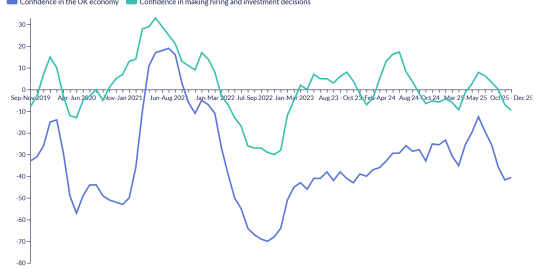As the green economy expands, it leads to the creation of new jobs—and new tools to find those jobs.
Going Green
Employment opportunities in the green economy have more than sprouted up in recent years. According to research from nonprofit organization The Pew Charitable Trusts, the number of jobs in America’s emerging clean energy economy grew nearly two and a half times faster than overall jobs between 1998 and 2007.
Pew research shows that jobs in the clean energy economy grew at a national rate of 9.1 percent, while traditional jobs grew by only 3.7 percent between 1998 and 2007. At the state level, the growth was as noteworthy, with green jobs in 38 states and the District of Columbia outperforming overall job growth.
Also of interest in the Pew study are the number of new green businesses and the number of new patents awarded during the period, as both suggest future growth and jobs creation.
What’s more, there is evidence that green growth has continued since Pew conducted its research. An independent study conducted by Washington state, for example, finds private sector green jobs increased by nearly a third from 2008 to 2009.
The growth can be attributed in part to government funding. The $787 billion economic-recovery bill, signed into law in February, includes approximately $62 billion in direct spending on green initiatives and about another $20 billion in green tax incentives.
But green growth is also the result of increased awareness on the part of Americans about issues like climate change, and an interest in alternative sources of energy and environmental responsibility. Recent government approval of Cape Wind, the nation’s first offshore wind project, is indicative of this shift and reflects a policy more in line with Europe’s energy initiatives.
Disaster, too, can be a catalyst for change. The oil-rig explosion off the coast of Louisiana on April 20 caused 11 deaths and created what may turn out to be the worst environmental disaster in U.S. history. As tens of thousands of gallons of oil spew into the Gulf of Mexico and endanger wildlife and the livelihoods of area residents, people have become more aware of the hazards of offshore drilling and, at least in some instances, are more willing to consider alternative sources of energy.
Growing Jobs
Although green jobs have already grown, every indication is that the growth will continue and accelerate.
Consider that the U.S. Labor Department’s CareerOneStop website, the online component that supports the Labor Department’s CareerOneStop centers throughout the U.S., now devotes an entire section to green careers.
And it isn’t a cursory look at green opportunities. At the site, job seekers will find national employment growth information for each occupation; this includes the number of jobs nationwide in 2008, the projected number of jobs in 2018, the change by percentage, earnings information, and education and training requirements.
Green careers are also assigned one of three categories: higher demand occupations, which means the occupations already exist but are expanding due to increased demand for green goods and services; changing skills occupations, which means the occupations already exist but their skill requirements are changing in response to green trends; and new green occupations, which means these are brand new and emerging occupations due to green trends.
For recruiters, the Green Careers section of the CareerOneStop site can provide valuable insight into the green job market.
The information can also prove helpful in determining what constitutes a green job, a subject of debate, and one that has in fact led people to doubt the impact of the green economy. Those who question the validity of the color green should take a look at the site’s list of New Green Occupations, jobs that didn’t exist until recently.
Growing Resources
As the green economy grows, it’s not surprising that the number of green job boards and career sites have grown. Several mainstream job boards and job aggregators have entered the green arena as well, offering search features, targeted advice, and/or career fairs.
Instead of assisting job seekers, however, the proliferation of resources has the potential to create confusion. Because green is a relatively new and subjective term, several factors come into play, including how a site defines green and how it categorizes its jobs.
When Chris Russell, founder of AllCountyJobs.com, a network of niche job sites, and cofounder of JobRadio.fm, the first career advice Internet radio station, started looking at the green job market, he noticed there were a lot of different sites targeting green jobs and that it created a very fragmented experience for the job seeker. His objective was to combine all legitimate sites into one experience where people could find green jobs much easier.
In March, Russell launched Green Job Spider, a new job search engine that allows job seekers to search for green jobs in one place. The “Google for green jobs” is the first job search engine for green jobs, and the first job search engine for a specific niche.
Russell tells Onrec that Green Job Spider currently crawls about 20 sites that have been certified as legitimate resources. Each source, whether a green job board, employer or recruiting firm, is reviewed and approved to ensure that it meets the necessary criteria. Jobs are then reviewed to make sure they are truly green. As of mid May, Green Job Spider boasted more than 6,800 green jobs.
Among green jobs, solar jobs currently account for the largest category, Russell says, while labor intensive jobs stand poised to produce the most new jobs. “Sales is also a big part of the green job market,” he tells Onrec, indicating Green Job Spider currently has more than 800 jobs with the word sales in the title. “Every company needs sales people. If you can sell, green companies want you.”
Once the economy rebounds, green companies may find themselves competing with others for crossover jobs, like those in sales. But for now, the green economy has something going for it that the mainstream economy lacks: it’s thriving.
For Green Job Spider, continued growth means more jobs to crawl. For Russell, however, it goes beyond the numbers. Green Job Spider is a new online recruitment opportunity that allows him to combine more than a decade of experience with issues that are important to him.
“To paraphrase Gordon Gekko, green is good,” Russell says.





